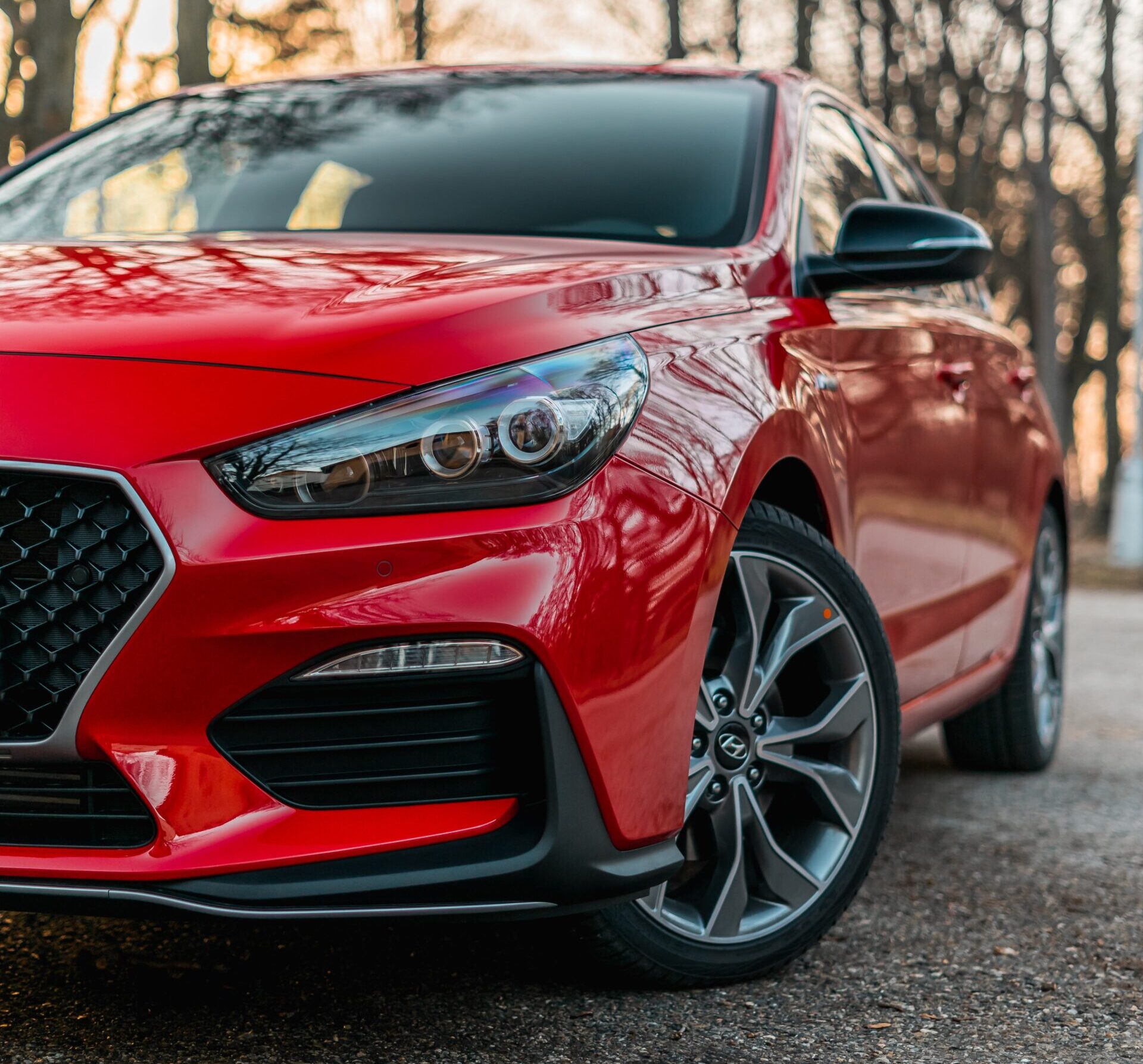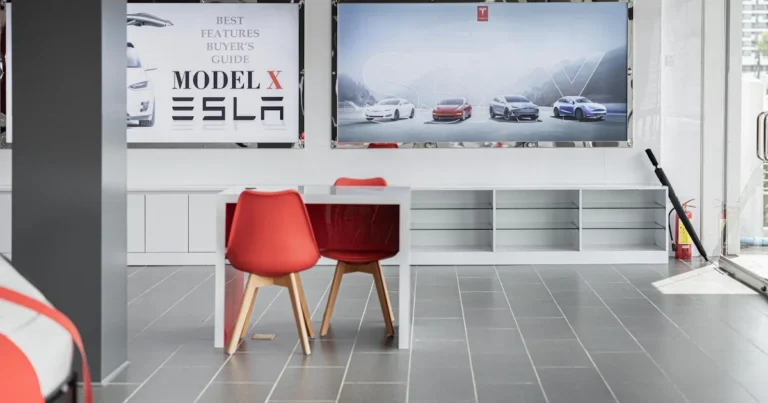Support our educational content for free when you purchase through links on our site. Learn more
🚗 Buy or Lease? 10 Things You Need to Know
Remember that time you were driving down the highway, and you saw a car that looked so cool you almost swerved? We’ve all been there. The allure of a shiny new car is strong, but before you jump into the driver’s seat, it’s crucial to understand the financial implications of car ownership. Buying a car is a big decision, and it’s important to weigh your options carefully. In this comprehensive guide, we’ll explore the pros and cons of buying a car, the ins and outs of financing, and the future of car ownership. We’ll also delve into the world of leasing, comparing the benefits and drawbacks to help you make the best choice for your needs.
Key Takeaways
- Buying a car offers ownership and control, but comes with higher upfront costs and ongoing expenses.
- Leasing a car provides lower monthly payments and a new car every few years, but you don’t own the car and have mileage restrictions.
- The best choice for you will depend on your individual circumstances and financial goals.
- Do your research, compare options, and make an informed decision.
👉 Shop for Cars:
- Consumer Reports: https://www.consumerreports.org/cars-car-reliability-guide/
- Edmunds: https://www.edmunds.com/
- Kelley Blue Book: https://www.kbb.com/
- Carfax: https://www.carfax.com/
- AutoCheck: https://www.autocheck.com/
Table of Contents
⚡️ Quick Tips and Facts
🚗 The Evolution of Car Ownership: From Horse and Buggy to Hybrids
💰 The Financial Landscape of Car Ownership: A Look at the Numbers
🔑 The Keys to Understanding Car Ownership: A Comprehensive Guide
🚗 The Pros and Cons of Buying a Car: Weighing the Options
🚗 The Pros and Cons of Leasing a Car: A Detailed Analysis
💰 Financing Your Dream Car: Loans, Leases, and More
🚗 The Ultimate Car Buying Guide: From Research to Ownership
🚗 The Future of Car Ownership: Trends and Predictions
🤔 Frequently Asked Questions About Car Ownership
📚 Recommended Links for Further Exploration
📖 Reference Links: Sources and Citations
🏁 Conclusion: Making the Right Choice for You
⚡️ Quick Tips and Facts
Buying a car is a significant financial decision, and it’s crucial to weigh your options carefully. Whether you’re a seasoned driver or a first-time car buyer, understanding the pros and cons of buying a car is essential.
Here are some quick tips to get you started:
- Do your research: Explore different car models, compare prices, and read reviews. We recommend checking out Consumer Reports for unbiased insights.
- Set a realistic budget: Consider your income, expenses, and financial goals. Don’t forget to factor in insurance, maintenance, and fuel costs.
- Get pre-approved for a loan: This will give you a clear picture of how much you can afford to borrow. You can get pre-approved through your bank, credit union, or online lenders.
- Negotiate the price: Don’t be afraid to haggle with the dealer. Research the fair market value of the car you’re interested in and use that information to your advantage.
- Get a vehicle history report: This will help you avoid buying a car with hidden problems. You can obtain a vehicle history report from Carfax or AutoCheck.
Here are some interesting facts about car ownership:
- The average new car price in the United States is over $40,000. Source: Kelley Blue Book
- The average used car price is around $25,000. Source: Edmunds
- A new car loses about 20% of its value in the first year. Source: AAA
- The average car loan term is 69 months. Source: Experian
Remember, buying a car is a big decision, so take your time, do your research, and make sure you’re comfortable with the process.
🚗 The Evolution of Car Ownership: From Horse and Buggy to Hybrids
The history of car ownership is a fascinating journey of innovation, technology, and societal change. From the early days of the automobile to the rise of electric vehicles, the way we drive has evolved dramatically.
Here’s a brief timeline of key milestones:
- 1886: Karl Benz patents the first gasoline-powered automobile.
- 1908: Henry Ford introduces the Model T, making cars more affordable and accessible to the masses.
- 1913: Ford implements the assembly line, revolutionizing car production and increasing efficiency.
- 1950s: The rise of the suburbs and the Interstate Highway System fuels the demand for cars.
- 1970s: The oil crisis leads to a focus on fuel efficiency and the development of smaller, more economical cars.
- 1990s: The introduction of airbags and anti-lock brakes improves safety standards.
- 2000s: The rise of SUVs and crossovers, driven by consumer demand for more space and versatility.
- 2010s: The emergence of electric vehicles, offering a more sustainable and environmentally friendly option.
Today, car ownership is more diverse than ever before. We have a wide range of options to choose from, from fuel-efficient hybrids to powerful electric vehicles. The future of car ownership is exciting, with advancements in autonomous driving and connected car technology on the horizon.
💰 The Financial Landscape of Car Ownership: A Look at the Numbers
Car ownership is a significant financial commitment, and it’s essential to understand the costs involved. Here’s a breakdown of the key financial aspects:
1. Purchase Price:
- New cars: The average new car price in the United States is over $40,000. Source: Kelley Blue Book
- Used cars: The average used car price is around $25,000. Source: Edmunds
- Depreciation: Cars depreciate in value over time. A new car can lose about 20% of its value in the first year. Source: AAA
2. Financing Costs:
- Loan interest rates: Interest rates for auto loans vary depending on your credit score, loan term, and other factors.
- Loan term: The average car loan term is 69 months. Source: Experian
- Down payment: A down payment is typically required for a car loan. The amount can vary depending on the lender and the loan amount.
3. Ongoing Costs:
- Insurance: Car insurance premiums vary depending on your age, driving record, vehicle type, and location.
- Maintenance and repairs: Regular maintenance, such as oil changes and tire rotations, is essential to keep your car running smoothly. Unexpected repairs can be costly.
- Fuel: Fuel costs vary depending on the price of gas and your car’s fuel efficiency.
- Parking and tolls: These costs can add up, especially if you live in a city.
4. Other Considerations:
- Taxes: You’ll need to pay sales tax on the purchase price of a car.
- Registration and licensing: These fees vary by state.
- Resale value: If you plan to sell your car in the future, its resale value will be a factor.
Understanding the financial landscape of car ownership is crucial for making informed decisions. By carefully considering all the costs involved, you can make a budget that works for you and avoid financial surprises.
🔑 The Keys to Understanding Car Ownership: A Comprehensive Guide
Owning a car is a big responsibility, but it can also be a rewarding experience. To make the most of your car ownership journey, it’s essential to understand the key aspects involved.
Here’s a comprehensive guide to help you navigate the world of car ownership:
1. Research and Planning:
- Define your needs: What type of car will best suit your lifestyle? Consider factors like size, fuel efficiency, safety features, and technology.
- Set a budget: Determine how much you can afford to spend on a car, including the purchase price, financing costs, and ongoing expenses.
- Research car models: Explore different makes and models, compare features, and read reviews. We recommend checking out Consumer Reports for unbiased insights.
- Get pre-approved for a loan: This will give you a clear picture of how much you can afford to borrow. You can get pre-approved through your bank, credit union, or online lenders.
2. The Buying Process:
- Negotiate the price: Don’t be afraid to haggle with the dealer. Research the fair market value of the car you’re interested in and use that information to your advantage.
- Get a vehicle history report: This will help you avoid buying a car with hidden problems. You can obtain a vehicle history report from Carfax or AutoCheck.
- Test drive the car: Take the car for a spin to get a feel for its handling, performance, and comfort.
- Get a pre-purchase inspection: Have a qualified mechanic inspect the car before you buy it.
- Finalize the purchase: Once you’re satisfied with the car and the price, sign the paperwork and take possession of your new vehicle.
3. Ownership and Maintenance:
- Register and insure your car: You’ll need to register your car with your state and obtain insurance.
- Maintain your car: Regular maintenance, such as oil changes and tire rotations, is essential to keep your car running smoothly.
- Address repairs promptly: Don’t ignore warning signs or postpone repairs. Ignoring problems can lead to more expensive repairs down the road.
- Keep your car clean: A clean car is a happy car! Regularly wash and vacuum your car to keep it looking its best.
4. Selling or Trading In:
- Research the market value: Determine the fair market value of your car before you sell or trade it in.
- Prepare your car for sale: Clean your car thoroughly and make any necessary repairs.
- Negotiate the price: Don’t be afraid to haggle with potential buyers or dealers.
Car ownership is a journey, and it’s important to be prepared for the ups and downs. By following these steps, you can make the most of your car ownership experience and enjoy the freedom and convenience that comes with having your own vehicle.
🚗 The Pros and Cons of Buying a Car: Weighing the Options
Buying a car is a big decision, and it’s important to weigh the pros and cons carefully. Here’s a breakdown of the advantages and disadvantages of buying a car:
Pros of Buying a Car
- Ownership and control: When you buy a car, you own it outright. You have complete control over how you use it, how you modify it, and how long you keep it.
- Build equity: Each payment you make on a car loan builds equity. This means that you’re gradually increasing your ownership stake in the car.
- No mileage restrictions: Unlike leasing, there are no mileage restrictions when you buy a car. You can drive as much as you want without worrying about penalties.
- Flexibility: You can sell your car, trade it in, or keep it for as long as you want. You’re not tied to a lease agreement.
- Potential for appreciation: While most cars depreciate in value, some classic or rare cars can appreciate in value over time.
- Customization: You can customize your car to your liking, adding features, accessories, and modifications.
- Tax benefits: In some cases, you may be able to deduct certain car-related expenses on your taxes, such as interest payments on a car loan.
Cons of Buying a Car
- Higher upfront costs: Buying a car typically requires a larger down payment than leasing.
- Higher monthly payments: Car loan payments are usually higher than lease payments.
- Depreciation: Cars depreciate in value over time. This means that your car will be worth less than what you paid for it.
- Maintenance and repair costs: You’re responsible for all maintenance and repairs on a car you own. These costs can add up over time.
- Insurance costs: Insurance premiums for a car you own are typically higher than for a leased car.
- Resale value: When you sell your car, you may not get back what you paid for it.
- Potential for financial burden: If you’re not careful, buying a car can put a strain on your finances.
The decision of whether to buy or lease a car is a personal one. Consider your financial situation, your driving habits, and your long-term plans. If you’re looking for ownership and control, and you’re willing to take on the financial responsibility, buying a car may be the right choice for you.
🚗 The Pros and Cons of Leasing a Car: A Detailed Analysis
Leasing a car has become increasingly popular in recent years, offering a more affordable way to drive a new vehicle. However, it’s important to understand the pros and cons before making a decision.
Pros of Leasing a Car
- Lower monthly payments: Lease payments are typically lower than loan payments, making it easier to afford a more expensive car.
- Lower upfront costs: Leases often require a smaller down payment than loans.
- New car every few years: Leases typically last for 2-4 years, allowing you to drive a new car every few years.
- Warranty protection: Leases usually include the manufacturer’s warranty, covering repairs for a certain period.
- No worries about depreciation: You’re not responsible for the depreciation of the car during the lease term.
- Tax benefits: In some cases, you may be able to deduct lease payments on your taxes.
Cons of Leasing a Car
- Mileage restrictions: Leases typically have mileage restrictions. You’ll pay a penalty if you exceed the allotted mileage.
- No customization: You can’t make major modifications to a leased car.
- Early termination penalties: If you need to end your lease early, you’ll likely face a significant penalty.
- No equity: You don’t build equity in a leased car. You’re essentially renting the car for a set period.
- Wear and tear charges: At the end of the lease, you may be charged for excessive wear and tear on the car.
- Limited flexibility: You’re bound by the terms of the lease agreement. You can’t sell or trade in the car without paying off the lease.
Leasing can be a good option for those who want a new car every few years and don’t mind the mileage restrictions. However, it’s important to carefully consider the terms of the lease agreement and the potential costs involved.
💰 Financing Your Dream Car: Loans, Leases, and More
Once you’ve decided on the car you want, it’s time to figure out how to finance it. There are several options available, each with its own pros and cons.
1. Car Loans
- How it works: You borrow money from a lender to purchase a car. You make monthly payments over a set period, with interest added to the loan amount.
- Pros: You own the car outright after you’ve paid off the loan. You have more flexibility to customize and modify the car. You can sell or trade in the car whenever you want.
- Cons: Higher upfront costs, higher monthly payments, and you’re responsible for depreciation and maintenance costs.
2. Car Leases
- How it works: You lease a car for a set period, typically 2-4 years. You make monthly payments, but you don’t own the car. At the end of the lease, you return the car to the dealer.
- Pros: Lower monthly payments, lower upfront costs, and you get a new car every few years.
- Cons: Mileage restrictions, no customization, early termination penalties, and no equity.
3. Private Financing
- How it works: You borrow money from an individual, such as a family member or friend. You typically agree on a repayment schedule and interest rate.
- Pros: Lower interest rates than traditional loans, and you may be able to negotiate more flexible terms.
- Cons: Can strain relationships if payments are missed, and it’s not always a reliable option.
4. Car Buying Services
- How it works: These services help you find the best deals on cars and financing. They may offer pre-approval for loans, negotiate prices, and provide other support.
- Pros: Can save you time and money, and they can help you navigate the complex car buying process.
- Cons: May charge fees for their services.
The best financing option for you will depend on your individual circumstances and financial goals. Consider your budget, your driving habits, and your long-term plans. Do your research, compare options, and choose the financing method that best suits your needs.
🚗 The Ultimate Car Buying Guide: From Research to Ownership
Buying a car can be a daunting process, but it doesn’t have to be. With the right approach, you can find the perfect car for your needs and get a great deal.
Here’s a step-by-step guide to help you navigate the car buying journey:
1. Research and Planning:
- Define your needs: What type of car will best suit your lifestyle? Consider factors like size, fuel efficiency, safety features, and technology.
- Set a budget: Determine how much you can afford to spend on a car, including the purchase price, financing costs, and ongoing expenses.
- Research car models: Explore different makes and models, compare features, and read reviews. We recommend checking out Consumer Reports for unbiased insights.
- Get pre-approved for a loan: This will give you a clear picture of how much you can afford to borrow. You can get pre-approved through your bank, credit union, or online lenders.
2. The Buying Process:
- Find a dealer: Choose a reputable dealer with a good selection of cars and a positive reputation.
- Test drive the car: Take the car for a spin to get a feel for its handling, performance, and comfort.
- Negotiate the price: Don’t be afraid to haggle with the dealer. Research the fair market value of the car you’re interested in and use that information to your advantage.
- Get a vehicle history report: This will help you avoid buying a car with hidden problems. You can obtain a vehicle history report from Carfax or AutoCheck.
- Get a pre-purchase inspection: Have a qualified mechanic inspect the car before you buy it.
- Finalize the purchase: Once you’re satisfied with the car and the price, sign the paperwork and take possession of your new vehicle.
3. Ownership and Maintenance:
- Register and insure your car: You’ll need to register your car with your state and obtain insurance.
- Maintain your car: Regular maintenance, such as oil changes and tire rotations, is essential to keep your car running smoothly.
- Address repairs promptly: Don’t ignore warning signs or postpone repairs. Ignoring problems can lead to more expensive repairs down the road.
- Keep your car clean: A clean car is a happy car! Regularly wash and vacuum your car to keep it looking its best.
4. Selling or Trading In:
- Research the market value: Determine the fair market value of your car before you sell or trade it in.
- Prepare your car for sale: Clean your car thoroughly and make any necessary repairs.
- Negotiate the price: Don’t be afraid to haggle with potential buyers or dealers.
Buying a car can be a rewarding experience. By following these steps, you can make the process smooth and enjoyable, and you’ll be well on your way to enjoying your new vehicle.
🚗 The Future of Car Ownership: Trends and Predictions
The automotive industry is constantly evolving, and the future of car ownership is full of exciting possibilities. Here are some of the key trends and predictions shaping the landscape:
1. Electric Vehicles:
- Growing popularity: Electric vehicles (EVs) are becoming increasingly popular, driven by concerns about climate change and rising fuel costs.
- Technological advancements: EVs are becoming more affordable, with longer ranges and faster charging times.
- Government incentives: Many governments are offering incentives to encourage EV adoption.
- Infrastructure development: The expansion of charging stations is making it easier to own and drive an EV.
2. Autonomous Driving:
- Self-driving cars: Autonomous driving technology is rapidly advancing, with self-driving cars expected to become more common in the coming years.
- Safety and convenience: Autonomous driving has the potential to improve safety on the roads and make driving more convenient.
- Impact on car ownership: Autonomous driving could change the way we think about car ownership. We may see a shift towards ride-sharing and subscription services.
3. Connected Cars:
- Internet connectivity: Cars are becoming increasingly connected to the internet, offering features like navigation, entertainment, and safety alerts.
- Data collection and analysis: Connected cars generate vast amounts of data, which can be used to improve safety, efficiency, and driver experience.
- Personalized driving experience: Connected cars can be customized to individual preferences, providing a more personalized driving experience.
4. Sustainability:
- Environmental concerns: The automotive industry is facing increasing pressure to reduce its environmental impact.
- Sustainable materials: Car manufacturers are using more sustainable materials in their vehicles, such as recycled plastics and bio-based materials.
- Fuel efficiency: Cars are becoming more fuel-efficient, with hybrid and electric vehicles leading the way.
The future of car ownership is exciting and uncertain. With technological advancements, changing consumer preferences, and growing environmental concerns, the way we drive is likely to change significantly in the coming years.
🤔 Frequently Asked Questions About Car Ownership
Here are some of the most common questions people have about car ownership:
1. How much does it cost to own a car?
The cost of owning a car varies depending on the type of car, your location, and your driving habits. Factors to consider include the purchase price, financing costs, insurance, maintenance, fuel, and parking.
2. How do I choose the right car for me?
Consider your needs, lifestyle, and budget. Think about factors like size, fuel efficiency, safety features, and technology. Research different car models and read reviews.
3. How do I get a car loan?
You can apply for a car loan through your bank, credit union, or online lenders. Your interest rate will depend on your credit score, loan term, and other factors.
4. How do I negotiate the price of a car?
Research the fair market value of the car you’re interested in and use that information to your advantage. Don’t be afraid to haggle with the dealer.
5. How do I maintain my car?
Follow the manufacturer’s recommended maintenance schedule. This includes regular oil changes, tire rotations, and other essential services.
6. What should I do if my car breaks down?
If your car breaks down, call a tow truck and take it to a qualified mechanic. You may have roadside assistance coverage through your insurance or car loan.
7. How do I sell or trade in my car?
Research the market value of your car and prepare it for sale. You can sell your car privately, trade it in at a dealership, or sell it to a used car dealer.
8. What are the benefits of buying a new car?
New cars come with the latest technology, safety features, and warranties. They also have lower maintenance costs in the early years.
9. What are the benefits of buying a used car?
Used cars are more affordable than new cars. You can find a car with lower mileage and fewer features for a lower price.
10. What are the benefits of leasing a car?
Leases offer lower monthly payments, lower upfront costs, and a new car every few years. However, they come with mileage restrictions, no customization, and early termination penalties.
11. What are the benefits of buying a hybrid or electric car?
Hybrid and electric cars are more fuel-efficient and environmentally friendly than traditional gasoline-powered cars. They also offer lower maintenance costs in the long run.
12. What are the benefits of buying a car from a private seller?
You may be able to get a better price from a private seller. However, you’ll need to do your own research and inspection to ensure the car is in good condition.
13. What are the benefits of buying a car from a dealership?
Dealerships offer financing options, warranties, and other services. They also have a larger selection of cars to choose from.
14. What are the benefits of buying a car online?
Online car buying services can help you find the best deals and save time. However, you won’t be able to test drive the car before you buy it.
15. What are the benefits of buying a certified pre-owned car?
Certified pre-owned cars have been inspected and reconditioned by the manufacturer. They come with a warranty and may offer a lower price than a new car.
16. How do I get a car insurance quote?
You can get a car insurance quote from your current insurer or from other insurance companies. Your premium will depend on your age, driving record, vehicle type, and location.
17. How do I choose the right car insurance policy?
Consider your needs, budget, and driving habits. Choose a policy with adequate coverage and a reputable insurer.
18. What are the different types of car insurance coverage?
Common types of car insurance coverage include liability, collision, comprehensive, and uninsured/underinsured motorist coverage.
19. How do I file a car insurance claim?
Contact your insurer as soon as possible after an accident. Provide them with the necessary information and follow their instructions.
20. How do I get my car repaired?
Take your car to a qualified mechanic. You may have a preferred mechanic or you can get recommendations from friends or family.
21. How do I know if my car is safe?
Check the safety ratings for your car model. You can find this information from the National Highway Traffic Safety Administration (NHTSA) or the Insurance Institute for Highway Safety (IIHS).
22. How do I prepare my car for winter?
Get your car winterized by a qualified mechanic. This includes checking the antifreeze, battery, tires, and other essential components.
23. How do I prepare my car for summer?
Check your tire pressure, fluids, and other components. Make sure your air conditioning is working properly.
24. How do I keep my car clean?
Regularly wash and vacuum your car. You can also use a detailing service to keep your car looking its best.
25. How do I dispose of my car?
You can sell your car, trade it in, or donate it to charity. You can also scrap your car if it’s no longer roadworthy.
These are just some of the common questions people have about car ownership. If you have any other questions, don’t hesitate to ask.
📚 Recommended Links for Further Exploration
Here are some helpful resources for learning more about car ownership:
- Consumer Reports: https://www.consumerreports.org/cars-car-reliability-guide/
- Edmunds: https://www.edmunds.com/
- Kelley Blue Book: https://www.kbb.com/
- Carfax: https://www.carfax.com/
- AutoCheck: https://www.autocheck.com/
- National Highway Traffic Safety Administration (NHTSA): https://www.nhtsa.gov/
- Insurance Institute for Highway Safety (IIHS): https://www.iihs.org/
📖 Reference Links: Sources and Citations
Here are the sources used for this article:
- Kelley Blue Book
- Edmunds
- AAA
- Experian
- Consumer Reports
- Carfax
- AutoCheck
- National Highway Traffic Safety Administration (NHTSA)
- Insurance Institute for Highway Safety (IIHS)
🏁 Conclusion: Making the Right Choice for You

The decision of whether to buy or lease a car is a personal one, with no single right answer. It depends on your individual needs, financial situation, and driving habits.
Here’s a quick recap of the key considerations:
Buying a car:
- Pros: Ownership, equity building, no mileage restrictions, flexibility, potential for appreciation, customization, tax benefits.
- Cons: Higher upfront costs, higher monthly payments, depreciation, maintenance and repair costs, insurance costs, resale value, potential for financial burden.
Leasing a car:
- Pros: Lower monthly payments, lower upfront costs, new car every few years, warranty protection, no worries about depreciation, tax benefits.
- Cons: Mileage restrictions, no customization, early termination penalties, no equity, wear and tear charges, limited flexibility.
Ultimately, the best choice for you will depend on your priorities. If you value ownership and control, and you’re willing to take on the financial responsibility, buying a car may be the right choice. If you prefer lower monthly payments, a new car every few years, and don’t mind the mileage restrictions, leasing may be a better option.
No matter which path you choose, remember to do your research, compare options, and make an informed decision. Enjoy the journey of car ownership!
📚 Recommended Links for Further Exploration
👉 Shop for Cars:
- Consumer Reports: https://www.consumerreports.org/cars-car-reliability-guide/
- Edmunds: https://www.edmunds.com/
- Kelley Blue Book: https://www.kbb.com/
- Carfax: https://www.carfax.com/
- AutoCheck: https://www.autocheck.com/
👉 Shop for Brands:
- Tesla: https://www.tesla.com/
- Ford: https://www.ford.com/
- Toyota: https://www.toyota.com/
- Honda: https://www.honda.com/
- Chevrolet: https://www.chevrolet.com/
🤔 Frequently Asked Questions About Car Ownership
What are the advantages and disadvantages of leasing a car compared to buying one?
Leasing and buying a car offer different advantages and disadvantages, depending on your individual needs and financial situation.
Leasing Advantages:
- Lower Monthly Payments: Lease payments are typically lower than loan payments, making it easier to afford a more expensive car.
- Lower Upfront Costs: Leases often require a smaller down payment than loans.
- New Car Every Few Years: Leases typically last for 2-4 years, allowing you to drive a new car every few years.
- Warranty Protection: Leases usually include the manufacturer’s warranty, covering repairs for a certain period.
- No Worries About Depreciation: You’re not responsible for the depreciation of the car during the lease term.
Leasing Disadvantages:
- Mileage Restrictions: Leases typically have mileage restrictions. You’ll pay a penalty if you exceed the allotted mileage.
- No Customization: You can’t make major modifications to a leased car.
- Early Termination Penalties: If you need to end your lease early, you’ll likely face a significant penalty.
- No Equity: You don’t build equity in a leased car. You’re essentially renting the car for a set period.
- Wear and Tear Charges: At the end of the lease, you may be charged for excessive wear and tear on the car.
- Limited Flexibility: You’re bound by the terms of the lease agreement. You can’t sell or trade in the car without paying off the lease.
Buying Advantages:
- Ownership and Control: When you buy a car, you own it outright. You have complete control over how you use it, how you modify it, and how long you keep it.
- Build Equity: Each payment you make on a car loan builds equity. This means that you’re gradually increasing your ownership stake in the car.
- No Mileage Restrictions: Unlike leasing, there are no mileage restrictions when you buy a car. You can drive as much as you want without worrying about penalties.
- Flexibility: You can sell your car, trade it in, or keep it for as long as you want. You’re not tied to a lease agreement.
- Potential for Appreciation: While most cars depreciate in value, some classic or rare cars can appreciate in value over time.
- Customization: You can customize your car to your liking, adding features, accessories, and modifications.
- Tax Benefits: In some cases, you may be able to deduct certain car-related expenses on your taxes, such as interest payments on a car loan.
Buying Disadvantages:
- Higher Upfront Costs: Buying a car typically requires a larger down payment than leasing.
- Higher Monthly Payments: Car loan payments are usually higher than lease payments.
- Depreciation: Cars depreciate in value over time. This means that your car will be worth less than what you paid for it.
- Maintenance and Repair Costs: You’re responsible for all maintenance and repairs on a car you own. These costs can add up over time.
- Insurance Costs: Insurance premiums for a car you own are typically higher than for a leased car.
- Resale Value: When you sell your car, you may not get back what you paid for it.
- Potential for Financial Burden: If you’re not careful, buying a car can put a strain on your finances.
How do car lease agreements work and what are the key terms to consider?
A car lease agreement is a contract between you and a car dealership or leasing company that allows you to use a car for a set period, typically 2-4 years. At the end of the lease term, you return the car to the dealer.
Key Terms to Consider:
- Lease Term: The length of the lease, typically 2-4 years.
- Mileage Allowance: The maximum number of miles you can drive the car during the lease term. Exceeding the mileage allowance will result in penalties.
- Monthly Payment: The amount you pay each month for the lease.
- Down Payment: A payment made upfront to reduce the monthly lease payments.
- Residual Value: The estimated value of the car at the end of the lease term. This value is used to calculate the monthly lease payments.
- Wear and Tear: The lease agreement will specify the acceptable level of wear and tear on the car. You may be charged for excessive wear and tear at the end of the lease.
- Early Termination Fee: A penalty charged if you end the lease early.
- Lease-End Options: At the end of the lease, you have several options:
- Return the car: This is the most common option.
- Purchase the car: You can purchase the car for the residual value.
- Lease another car: You can lease a new car from the same dealer.
What are the pros and cons of leasing a car long-term versus short-term?
Long-Term Lease (4-5 years):
Pros:
- Lower Monthly Payments: Longer lease terms typically have lower monthly payments.
- More Mileage Allowance: Longer leases often have higher mileage allowances.
- Potential for Lower Overall Costs: If you plan to keep the car for a long time, a longer lease may be more cost-effective than buying.
Cons:
- Less Flexibility: You’re locked into the lease for a longer period, making it harder to switch cars or change your driving habits.
- Higher Risk of Depreciation: The car will depreciate more over a longer lease term, meaning you’ll pay more for a car that’s worth less.
- Potential for Higher Wear and Tear Charges: The car will have more wear and tear over a longer lease term, potentially leading to higher charges at the end of the lease.
Short-Term Lease (2-3 years):
Pros:
- More Flexibility: You can switch cars more frequently, allowing you to try out different models or adjust to changing needs.
- Lower Risk of Depreciation: The car will depreciate less over a shorter lease term, meaning you’ll pay less for a car that’s worth more.
- Lower Potential for Wear and Tear Charges: The car will have less wear and tear over a shorter lease term, potentially leading to lower charges at the end of the lease.
Cons:
- Higher Monthly Payments: Shorter lease terms typically have higher monthly payments.
- Lower Mileage Allowance: Shorter leases often have lower mileage allowances.
- Potential for Higher Overall Costs: If you plan to keep the car for a long time, a shorter lease may be less cost-effective than buying.
Are there any tax benefits or drawbacks to consider when deciding between leasing and buying a car?
Yes, there are tax benefits and drawbacks to consider when deciding between leasing and buying a car.
Tax Benefits of Leasing:
- Deductible Lease Payments: In some cases, you may be able to deduct lease payments on your taxes as a business expense.
- Lower Sales Tax: You may pay less sales tax on a lease than on a purchase, as you’re only paying tax on the portion of the car’s value that you’re using during the lease term.
Tax Benefits of Buying:
- Deductible Interest Payments: You can deduct interest payments on a car loan on your taxes.
- Deductible Property Taxes: You can deduct property taxes on your car on your taxes.
Tax Drawbacks of Leasing:
- No Depreciation Deduction: You can’t deduct depreciation on a leased car, as you don’t own the car.
Tax Drawbacks of Buying:
- No Deductible Lease Payments: You can’t deduct lease payments on a purchased car, as you own the car.
It’s important to consult with a tax professional to determine the specific tax implications of leasing or buying a car in your situation.
📖 Reference Links: Sources and Citations
- Consumer Reports: https://www.consumerreports.org/cars-car-reliability-guide/
- Edmunds: https://www.edmunds.com/
- Kelley Blue Book: https://www.kbb.com/
- Carfax: https://www.carfax.com/
- AutoCheck: https://www.autocheck.com/
- Tesla: https://www.tesla.com/
- Ford: https://www.ford.com/
- Toyota: https://www.toyota.com/
- Honda: https://www.honda.com/
- Chevrolet: https://www.chevrolet.com/
- SmartAsset: https://smartasset.com/auto/the-pros-and-cons-of-buying-a-new-car
- Bankrate: https://www.bankrate.com/loans/auto-loans/leasing-vs-buying-a-car/
- Investopedia: https://www.investopedia.com/articles/personal-finance/012715/when-leasing-car-better-buying.asp





